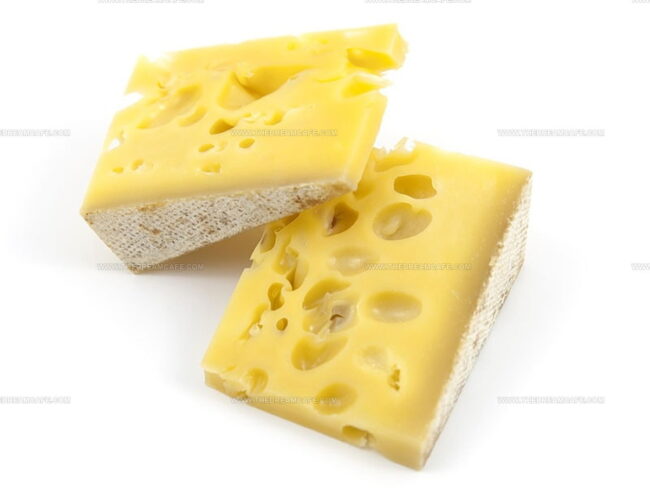How Does Gruyere Cheese Taste? The Rich, Nutty Flavor in Every Bite
Gruyere cheese, a Swiss culinary treasure, carries a rich heritage that captivates food enthusiasts worldwide.
Crafted in the picturesque alpine regions, this remarkable dairy product boasts a complexity that sets it apart from ordinary cheeses.
Passionate cheese lovers often seek to understand its unique flavor profile and characteristics.
The journey of gruyere involves intricate production methods and careful aging processes that contribute to its distinctive qualities.
Regional traditions and expert cheesemaking techniques play crucial roles in developing its remarkable depth.
Subtle nuances emerge during different stages of maturation, creating a sensory experience that intrigues both novice and seasoned cheese connoisseurs.
Unraveling the sensory secrets of gruyere promises an exciting gastronomic adventure that will transform your understanding of this exceptional cheese.
Everything About Gruyère Cheese
Gruyere comes from a Swiss town called Gruyeres, which first started making this cheese. Chefs and cheese lovers recognize Gruyere as one of Switzerland's top cheese options, alongside Emmental and Swiss varieties.
Cheese makers create Gruyere using pure cow's milk and age it for at least 5 months. Salt water baths and careful handling help build its natural outer layer. When people taste it, they notice rich fruit and earth flavors with soft nutty hints that end smoothly.
Small air bubbles form tiny holes during cheese production, a signature Swiss cheese trait. Gruyere shows fewer holes compared to other Swiss cheese types, making its texture slightly different from its cheese cousins.
How Gruyère Is Crafted
Gruyere Cheese Making Process:
Gruyere needs aging for at least 5 months to develop its signature taste. Some cheese types need up to 18 months of aging. Longer aging creates stronger flavors.
Cheese makers follow this process in factories. People can learn to make Gruyere at home with proper instructions.
What Gruyère Tastes Like
Gruyere cheese offers a greasy and nutty flavor with subtle fruit notes. Different aging stages create unique taste experiences. Young Gruyere shows creamy smoothness and mild sweetness, while aged versions develop sharper profiles with firmer textures. Older cheese slices might separate easily and occasionally hint at acidic undertones.
Gruyere provides a balanced taste that complements other ingredients without dominating them. Its pleasant flavor works well in many recipes. Leftover bread becomes delicious when paired with this versatile cheese, making simple meals more interesting.
Creative Uses for Gruyère Cheese
Gruyere cheese offers multiple ways to create tasty meals throughout the week.
Swiss cheese works perfectly in classic French meals like croque monsieur and French onion soup.
Mixing Gruyere with other cheeses can produce interesting flavor combinations.
Blending Gruyere with white wine and garlic makes an excellent sauce for many dishes.
Gruyere pairs wonderfully with salads and fruits. Homemade pear desserts become more delicious when adding some Gruyere cheese.
Melting characteristics make this cheese ideal for several cooking methods:
Is Gruyère a Healthy Option?
Gruyere cheese packs a powerful nutritional punch. Cheese fans appreciate its many health perks. People trust this cheese for several key reasons:
Great Gruyère Cheese Substitutes
Cheese lovers sometimes run into problems when their favorite Gruyere is missing from their kitchen. Luckily, several cheese options can step in as replacements:
Parmense: Perfect match with taste and texture very close to Gruyere cheese.
Emmentaler: Swiss cheese with smooth, buttery notes and light hazelnut hints. Ideal for traditional sauces and similar cooking needs.
More cheese alternatives include:
Keep in mind that small recipe amounts work best for cheese substitutions. Large quantities might change how your dish turns out, so choose carefully when replacing Gruyere.
Gruyère Taste and FAQs Explained
1. How do I know if Gruyere cheese has gone bad?
Check for signs like a hard or dry texture, dark spots, a strong or sour smell, or any mold growing on the cheese. If you notice any of these, it’s best to throw it away.
2. Should I keep Gruyere cheese in the fridge?
Yes, store Gruyere in the refrigerator. Wrap it well in plastic wrap or put it in a sealed container to keep it fresh. It usually lasts up to 2 or 3 weeks when stored this way.
3. Are Gruyere and Swiss cheese the same?
They are similar, but not quite the same. Both are mild and a little nutty, but Gruyere has a deeper, richer taste, especially as it ages.
4. Is Gruyere cheese good for people trying to lose weight?
Gruyere has nutrients that help support your metabolism, but like all cheese, it’s best enjoyed in moderation if you’re watching your calories.
5. What are some easy ways to use Gruyere cheese?
Gruyere melts beautifully, making it perfect for grilled cheese sandwiches, French onion soup, quiches, or sprinkled on baked potatoes and veggies.
6. Can you freeze Gruyere cheese?
Yes, you can freeze Gruyere, but it may change texture and become crumbly after thawing. It’s still great for cooking, even if it’s not as smooth.
7. How do you pronounce “Gruyere”?
It’s pronounced “groo-YAIR.” Don’t worry if you say it a little differently, most people will understand what you mean!
8. What other cheeses taste similar to Gruyere?
If you can’t find Gruyere, try Emmental, Jarlsberg, or Comté. These cheeses have similar mild and nutty flavors and also melt well.
Does Gruyère Meet Your Expectations?
Gruyere stands out as a beloved Swiss cheese praised for its amazing taste. People enjoy it melted on pizzas, mixed into salads, added to sandwiches, or stirred into sauces. Swiss chefs love this cheese because it blends smoothly into many dishes.
Gruyere carries lots of important nutrients that support health. Cheese lovers should watch portion sizes since it contains sodium and saturated fat. Eating too much might increase risks of high blood pressure, heart problems, and diabetes.
Smart cooks can swap Gruyere with other similar cheese options in recipes when needed.
What cheese dishes do you make with Gruyere? Do you enjoy its special flavor?
Share this article so more people learn about Gruyere cheese. Questions about this cheese? Drop a comment below!


